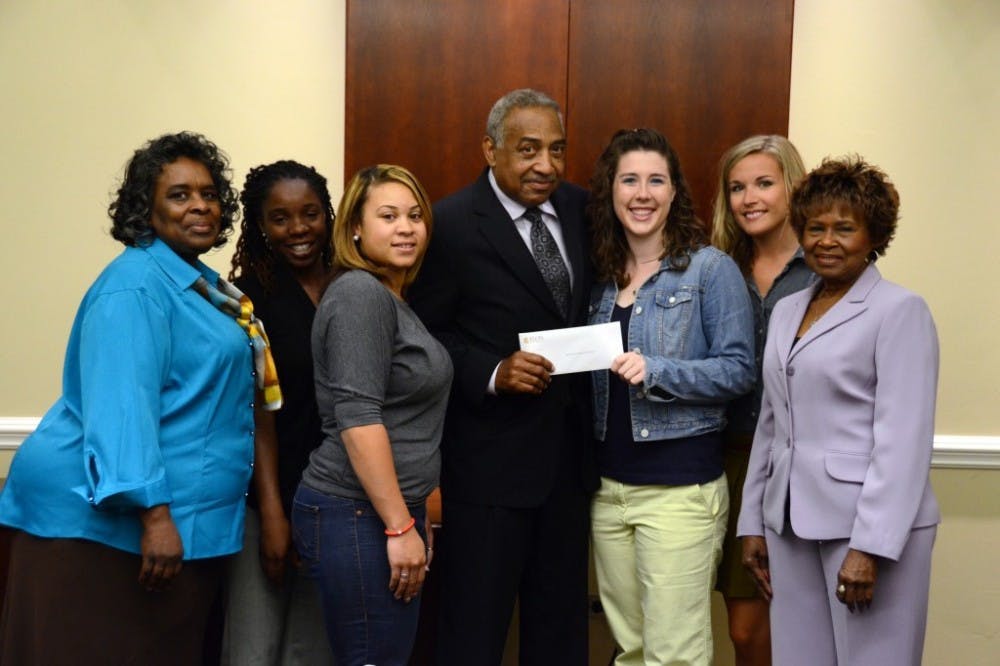The students in Bud Warner’s Designing and Assessing Administration of Human Service Programs class had only one project: to give back to the community.
For the class, the students were split into two groups and had to work together to create a proposal for a donation to a non-profit organization in the community.
“These students got the sense that their involvement was not theoretical, but real,” said Warner, associate professor of Human Services Studies. “They are gaining first-hand knowledge about philanthropy.”
Warner applied for a grant from the Learning by Giving Foundation, which promotes the study of undergraduate philanthropy, and was given $10,000, which he divided between both semesters. The students this semester separated the $5,000 between the two groups, which they donated to the Burlington Housing Authority and Allied Churches April 10.
Tara Nager, a senior human services studies major, worked to give to the Burlington Housing Authority.
“It was the most rewarding experience, working with Alamance County’s needs,” she said.
The Burlington Housing Authority is an organization devoted to offering affordable housing for families, elderly, disabled and handicapped people who are in need of a home. Nager and the rest of her group gathered information about the organization to create an effective proposal.
The students have been working with their chosen organizations since February, and were happy to have the opportunity to work and give back to the community.
Sarah Baig, a senior human services studies major, was a member of the group who gave to Allied Churches, a homeless shelter and kitchen in Burlington, and said she understood the specific needs of the organizations through research.
“We gathered data from the area and found that they were in need of bed bug prevention,” Baig said. “They could have been shut down from the bed bugs.”
The class, which was only a half semester course, was aimed at giving the students firsthand experience in proposing, creating and designing a donation to an organization in the community.
“These students are the future in human services organizations,” Warner said.


